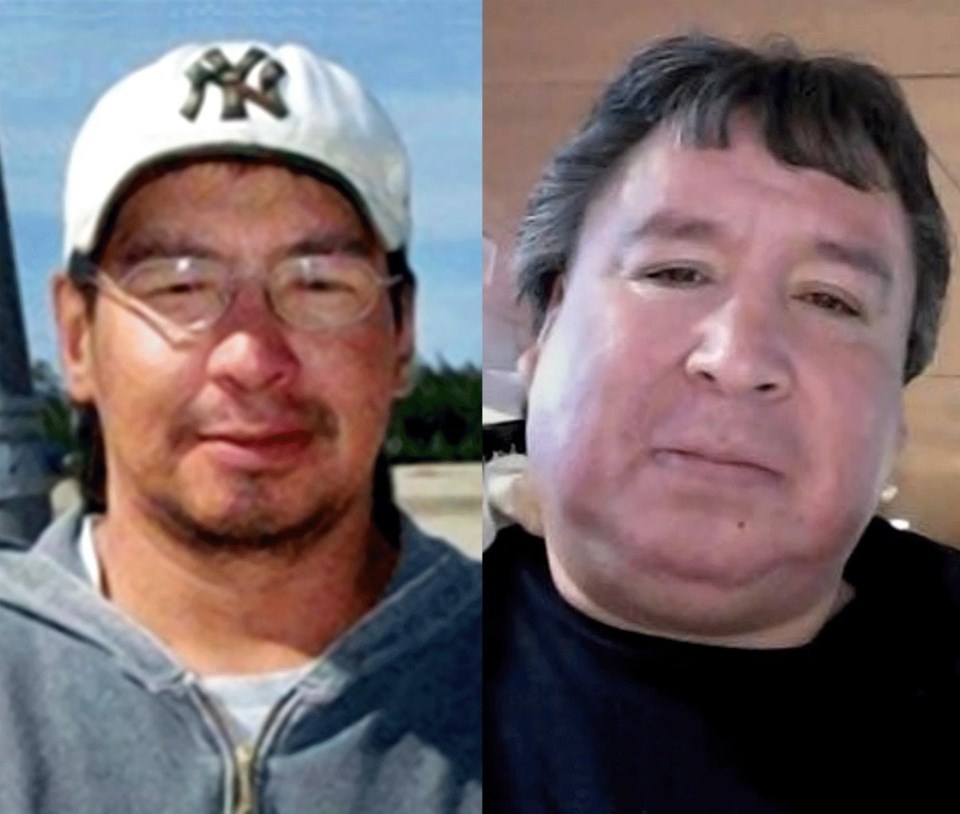Thunder Bay police and paramedics should receive mandatory, ongoing training on anti-Indigenous racism, unconscious bias and the history of colonization, an inquest jury recommended Friday after examining the police custody deaths of two First Nations men.
The recommendations came at the conclusion of the joint inquest into the 2014 death of 44-year-old Don Mamakwa and the 2017 death of 50-year-old Roland McKay, who both died after receiving no medical attention while at police headquarters.
Denise Tait, a niece of the men who were related, said their families were relieved the inquest had brought answers and was now over.
"We can finally start our healing journey and let them rest," she wrote in a statement.
The jury thanked the men's families for С����Ƶ present throughout the weekslong inquest that heard difficult evidence about Mamakwa and McKay's final hours of life.
"We hope this brings you peace and closure knowing that these decisions were made to the best of our ability and with Don and Roland in our hearts and in our minds," one juror said.
Mamakwa and McKay were both arrested on suspicion of public intoxication and died of medical conditions while in custody. Neither were seen by a doctor or nurse before they died. The inquest has heard they had chances of survival had they been taken to a hospital.
The jury said the police racism training should be audited by Indigenous groups on its effectiveness. Reconciliation training, which the police force has said it expects all officers to complete by next year, should be continuous throughout an officer's career, the jury recommended.
Other training-based recommendations included officers having bystander training to make them more comfortable addressing inappropriate behaviour by colleagues, and that police should be trained on seeking information from arrested individuals about their medical conditions.
A recommendation aimed at the Ministry of Colleges and Universities said educational institutions should provide first responders with training about racism, trauma-informed approaches and the history of colonization and residential schools.
Some of the recommendations were aimed at a lack of services to treat intoxicated people and those with alcohol use disorder.
The jury called for a sobering centre to be established in Thunder Bay, and for more spaces to be created in detoxification and rehabilitation centres so intoxicated people do not end up in police custody.
A recommendation aimed at the province's solicitor general said police and jailers should be trained on medical issues that can mimic intoxication.
The jury was also tasked with determining the manner of death for both men, but not with assigning blame or liability. It found that McKay died of natural causes, while Mamakwa's cause of death was undetermined.
The inquest had heard arguments from Mamakwa's family that his death was a homicide because police and paramedics did not take up opportunities to help him seek medical care. A lawyer for police officers argued he died from natural causes due to medical issues that began before first responders interacted with him.
Mamakwa's sister said the family understands it was not easy to reach a finding.
"We were hoping the jury would find Don’s death to be a homicide, but we are happy that there has been a public airing about the horrible way that Don was treated," Rachel Mamakwa said in a written statement. "He deserved so much better."
The inquest has heard that Don Mamakwa asked to go to the hospital before he was arrested, but the paramedics on scene did not take him. An expert testified that Mamakwa had a 97 per cent chance of surviving if he had been taken to the hospital before his death from factors related to diabetes, sepsis and chronic alcoholism.
It has also heard evidence that Mamakwa told police he was on medication but they did not document that, and that he asked another prisoner for water in the hours before his death, but was only checked on twice while in custody – the second time С����Ƶ three hours after he died.
In McKay's case, jurors heard he died of hypertensive heart disease, for which he would have had more treatment options at a hospital.
Paramedics did not provide him with information about his vital signs like heart rate and supervisors at the police station assumed he had sleep apnea while his condition was worsening, the inquest heard.
The jury also recommended that the Thunder Bay Police Services Board establish a new deputy police chief position focused on Indigenous relations. It also asked the board to consider making public timelines for implementing recommendations from other inquests and inquiries related to police.
The recommendations come after a series of reviews and reports have scrutinized Thunder Bay's police force and found evidence of systemic racism in its treatment of Indigenous people.
Rachel Mamakwa said her family appreciates the jury's work to prevent future tragedies.
"We appreciate the recommendations that were put forward so that no other family will have to go through this," she said.
This report by The Canadian Press was first published Nov. 4, 2022.
Holly McKenzie-Sutter, The Canadian Press


.png;w=120;h=80;mode=crop)

